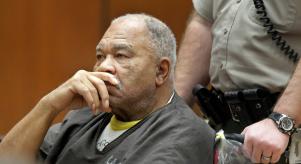
Coaches that abuse: Winning by any cost
In 2019, the world was rocked by the #MeToo movement which saw many sexual predators finally face a reckoning. Though not caught up in the social media scandal of 2019, which mainly focussed on Hollywood one predator finally faced justice in that year. His conviction made us question whether another industry might be next to have its own reckoning. Does sport have a problem with sexual abuse?
In 2019, a former youth coach, Bob Higgins was sentenced to 24 years in prison for abusing 24 schoolboys over 25 years, from 1971 to 1996. Others have since come forward with claims of their own and police have said he could still be charged with additional crimes. Over 100 players have spoken out.
His victims have questioned why nothing was done sooner. Some came forward in 1989 and later, but were not believed. The Football League (the sport’s then governing body) issued a warning to its clubs that same year. In 1991, there was even a trial, but Higgins was acquitted. He moved from Southampton FC to Peterborough United and continued abusing children there.
Why wasn’t he stopped after charges were brought? Bob Higgins was a star—not just in his own right, but by association: he was known for making them. Alan Shearer, Dennis Wise and Matt Le Tissier had worked with him (the latter has said he received a 'naked massage' from Higgins). Former players have said he was ‘was god’ to them. He could make their careers. Or he could damage their chances.
Higgins’ isn’t a lone case. There have been widespread allegations of historical child sex abuse in football. The worst among them might be the case of the former football coach Barry Bennell (described as a 'pied piper'). Bennell was involved in a number of clubs, including Alexander Crewe and Manchester City, though his coaching took him to schools and holiday camps, as well. Bennell was another ‘star maker’ and it was thanks to this that he was able to continue molesting children on a prolific scale. It’s thought his victims are numbered in the hundreds.
But such scandals aren’t isolated to football and the UK. It’s a problem that has become endemic in elite athletics.
In America, the Penn State scandal saw assistant football coach Jerry Sandusky convicted of child molestation after a career that spanned decades. His victims were his young male players, boys he met through the charity he set up to help at-risk youth and his own adopted children. The allegations (of ‘naked showers, inappropriate touching and rape) go back to the 1990s, but charges weren’t filed and in some cases, the incidents weren’t even reported to police. An investigation finally began in 2008 and Sandusky was sentenced to 30 years in prison in 2012.
But one of the biggest sexual abuse scandals in sports history is the case of Larry Nassar: the USA Gymnastics national team doctor who abused underage female athletes. His case follows a familiar pattern. He was said to be great. It was an honour to be treated by him: a sign of your own potential. He worked with famous, Olympic athletes—and he abused them. Gymnasts would be sent to him for any injury and he would prescribe a massage, then penetrate them with his bare hands, while telling them that pelvic massages were part of the treatment. Sometimes, he would even do it while the girls’ parents were in the room.
Nassar is said to have abused hundreds of women over decades. In court, 156 women confronted him, including Olympic champions and gold medallists, before he was given a sentence of 175 years. His victims have also asked why something wasn’t done sooner and are pointing to institutional cover-ups. IndyStar conducted an investigation that discovered that officials within Olympic organisations failed to report claims of abuse to the police. In some cases, coaches who were convicted of crimes against children weren’t even banned from the sport until years later.
That same complaint keeps coming up: people knew, but did nothing. The predators were protected. Court documents revealed that Penn State’s head football coach Joe Paterno was said to have known about Sandusky’s abuse as early as 1976—12 years before the earliest known allegation—which he dismissed and ignored. In the UK, the Lawn Tennis Association allowed coach Daniel Sanders to continue in his role, after repeated warnings against him. He then abused an underage player and was imprisoned. If people knew, why were they allowed to continue?
The 1986 US national champion gymnast Jennifer Sey, who has spoken about the abuse she knew of in the 1980s, points to the issue of sponsorship and medals that the US Olympic Committee didn’t want to risk by reporting the abuse. The same applies across sport. One of Sandusky’s victim reported Paterno told him, 'I have a football season to worry about.'
Sport has been elevated to a level where winning has almost become all that matters. It’s a culture; in America, it’s almost a religion. Results are more important than the athletes’ wellbeing when those results come with a huge amount of money, fame and acclaim attached. That’s put at risk as soon as someone speaks out, so people turn a blind eye.
The molesters were creating those results. They were ‘star makers’ so they were trusted and respected. They had authority, not only over the children in their care, but their families, too. No one questioned them or scrutinised their actions. Nassar was often alone in the room with his young patients. He would come to them late at night to continue his ‘treatments’. But he was a brilliant doctor, so it went unquestioned.
Winning by any means necessary, including extreme measures and gruelling regimes has become a part of the narrative for elite athletes. In an interview for Salon, Sey spoke of seeing a coach throw a chair at another gymnast and a culture of eating disorders. We expect them to push themselves to extremes in order to excel. By that same narrative, we have faith in the people that will push them, that know how to get the results. But that compulsive need to become the best at all costs is what has in part enabled the systemic abuse of children. It’s more than the actions of these predators that need to be interrogated. Winning shouldn’t come at the cost of lives.






